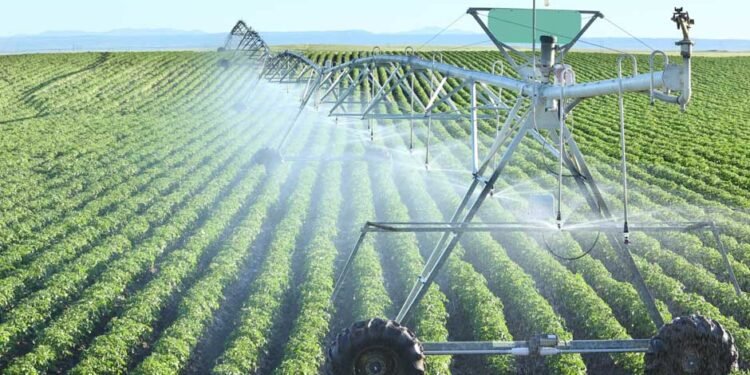Water management is pivotal in modern agriculture, impacting crop yields and farm productivity. We will delve into the significance of field water management services and how they contribute to maximizing crop yields. By examining various strategies and technologies, we aim to provide insights from https://yourexpertelectric.com/springfield/ into optimizing water resources for sustainable and efficient farming practices.
Understanding Field Water Management
Field water management encompasses a range of practices to utilize water resources within agricultural landscapes efficiently. These practices include irrigation scheduling, soil moisture monitoring, drainage systems, and water conservation techniques. The goal is to ensure crops receive adequate water while minimizing wastage and environmental impact.
Importance of Irrigation Efficiency
One key aspect of field water management is improving irrigation efficiency. Efficient irrigation systems deliver water precisely to the root zone of plants, reducing water loss due to evaporation or runoff. Technologies such as drip irrigation, precision sprinklers, and moisture sensors help farmers optimize water use, leading to higher crop yields per unit of water applied.
Role of Soil Moisture Monitoring
Monitoring soil moisture levels is crucial for effective water management. By understanding the moisture content in the soil, farmers can adjust irrigation schedules to meet the specific needs of different crops and soil types. Real-time monitoring systems and data analytics enable farmers to make informed decisions, ensuring optimal water availability for plant growth.
Implementing Drainage Systems
Proper drainage is essential for maintaining soil health and preventing waterlogging, which can hinder crop growth. Field water management services often involve designing and implementing drainage systems that remove excess water from fields, promoting plant root development and nutrient uptake. Well-drained soils also facilitate better aeration, benefiting overall crop productivity.
Water Conservation Techniques
In addition to optimizing water use, field water management includes implementing conservation techniques to reduce overall water consumption. Techniques such as mulching, cover cropping, and rainwater harvesting help retain soil moisture, minimize water loss, and improve crop resilience during dry spells or drought conditions.
Precision Agriculture Techniques
Field water management services often integrate with precision agriculture techniques to further enhance crop yields. Precision agriculture utilizes advanced technologies such as drones, satellite imagery, and GPS-guided machinery to create detailed field maps and monitor crop health in real-time. By identifying areas with varying water needs, farmers can apply water resources more efficiently, leading to increased productivity and cost savings.
Sustainable Water Use Practices
Sustainability is a crucial pillar of modern agriculture, and water management is central to achieving sustainable practices. Farmers can reduce dependence on external water sources while maintaining or even improving yields through regenerative farming, which focuses on improving soil health and water retention. Sustainable water use practices benefit the environment and contribute to long-term farm viability.
Economic and Environmental Benefits
Effective field water management services yield agricultural benefits and economic and environmental advantages. By optimizing water use, farmers can reduce input costs associated with irrigation while maximizing crop yields, leading to higher profitability. Moreover, efficient water management contributes to water conservation, mitigates the risk of water pollution, and supports biodiversity conservation, fostering a healthier ecosystem for future generations.
Government Support and Policies
Government support and policies play a significant role in promoting effective field water management. Many governments provide subsidies, grants, and incentives to encourage farmers to adopt water-efficient practices and invest in modern irrigation technologies. Additionally, regulatory frameworks often emphasize sustainable water use and require farmers to adhere to water conservation guidelines, further driving the adoption of field water management services across agricultural sectors.
Future Trends and Innovations
Looking ahead, advancements in technology and research continue to shape the future of field water management. Emerging innovations such as smart irrigation systems, nanotechnology for soil moisture control, and predictive analytics for water demand forecasting hold immense potential for optimizing water use and improving crop resilience. Integrating artificial intelligence and machine learning algorithms into water management systems will enable real-time decision-making and further enhance agricultural sustainability in the face of evolving climate challenges.
Education and Knowledge Sharing
Education and knowledge sharing are vital in promoting effective field water management practices among farmers and agricultural stakeholders. Training programs, workshops, and extension services provide valuable insights and technical expertise on water-efficient farming techniques, irrigation management, and sustainable agriculture practices. Encouraging information exchange and collaboration within farming communities fosters a culture of continuous learning and adaptation, empowering farmers to make informed decisions and implement best practices for optimal crop yields and resource conservation.
While field water management services are essential for maximizing crop yields and sustainability in agriculture, ongoing education and knowledge sharing are equally critical. Equipping farmers with the necessary skills, information, and support systems can ensure the widespread adoption of efficient water management practices, contributing to food security, environmental protection, and economic prosperity in agricultural landscapes.












